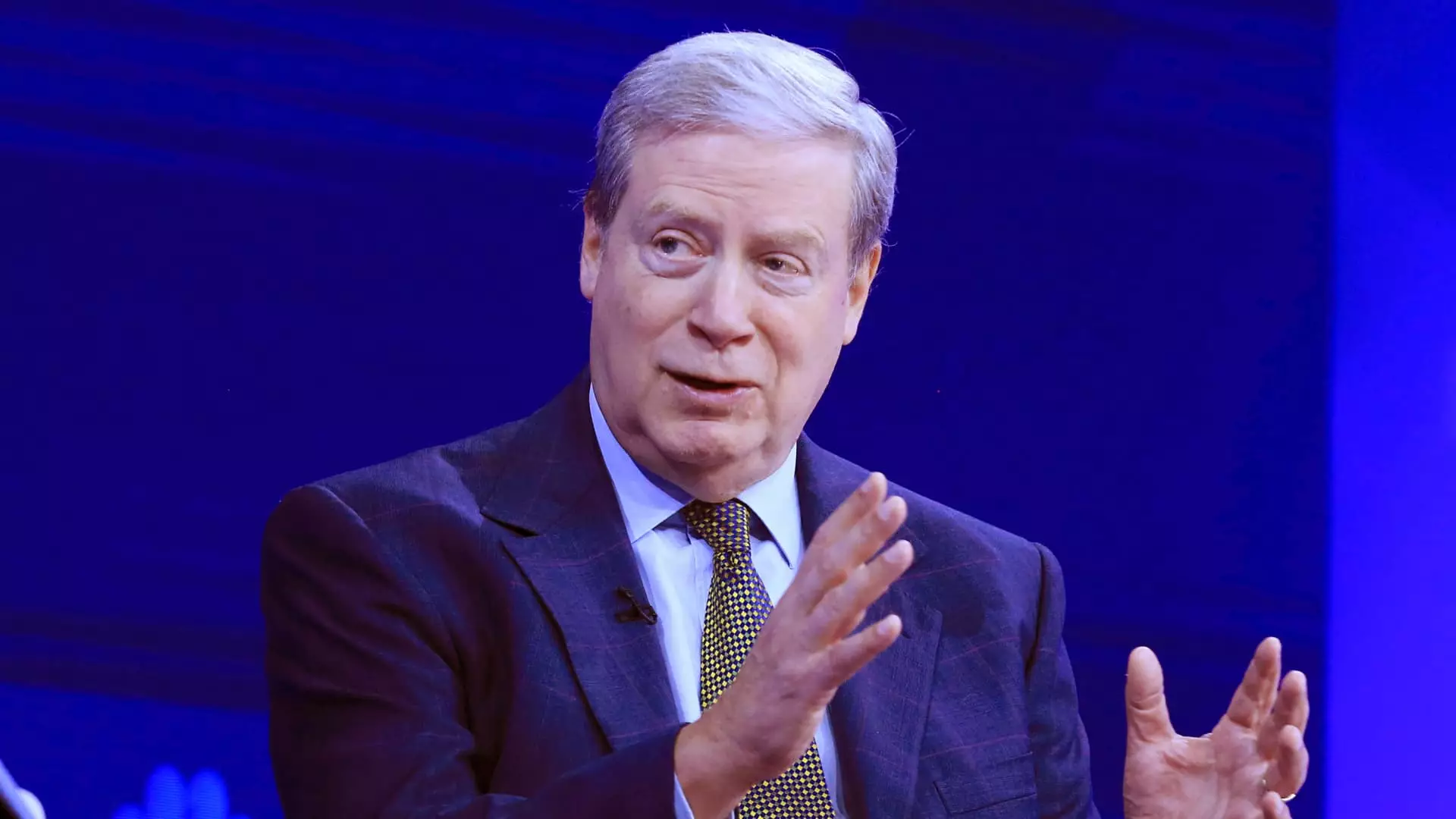The recent re-election of Donald Trump has sparked discussions among financial pundits regarding the implications for the economy, particularly from renowned billionaire investor Stanley Druckenmiller. Reflecting on nearly half a century of experience in investment, Druckenmiller expressed a significant turnaround in market sentiment, signaling a transition from what he perceives as an “anti-business administration” to one that is more favorable for corporate growth. This shift in sentiment is not just speculation; according to Druckenmiller, the tangible enthusiasm among CEOs has elevated, showcasing a mix of relief and exuberance across various sectors.
Druckenmiller’s assertions, derived from direct conversations with leading companies, indicate that the leaders of these businesses are feeling a renewed sense of hope. This resurgence of confidence is often referred to as “animal spirits,” a term that highlights the emotional and psychological factors that drive economic decisions. The optimism surrounding Trump’s policies—particularly his commitments to tax cuts and deregulation—has significantly buoyed risk assets, drawing attention to sectors such as banks, energy, and technology, where expectations for growth have surged.
While enthusiasm fills the air, Druckenmiller adopts a more tempered perspective concerning the stock market’s trajectory. His cautious stance stems primarily from the rising bond yields that could confound the operations of a high-performing economy. He suggests that the dual forces of a flourishing economy and increasing bond yields create a complex landscape for investors, leaving him ambivalent about making robust predictions regarding market performance.
Holding a short position on Treasuries, Druckenmiller is banking on an uptick in yields as a counter-reaction to the robust economic conditions. This strategy reflects a broader anxiety about how rising yields might intersect with stock market exuberance, contributing to potential market corrections. As Druckenmiller notes, the balancing act between emerging economic strengths and the catalyzing forces of rising interest rates complicates his outlook, generating a more cautious approach to stock investment.
With the complexities of the broader market in mind, Druckenmiller proposes a more selective investment strategy, focusing on individual stocks rather than aggregating market indices. He expressed excitement about companies that leverage artificial intelligence to enhance productivity and streamline costs, indicating a bullish stance on the technological advancements reshaping various industries. Despite this enthusiasm, he refrained from naming specific stocks, having recently divested positions in giants like Nvidia and Microsoft.
The implication here is clear: investors should consider not just broader market trends but also the particular innovations and operational efficiencies that companies can achieve through AI. This distinction is pivotal in a landscape where technological evolution poses both opportunities and risks.
Druckenmiller also addressed potential headwinds presented by Trump’s trade policies, particularly the risk of tariffs and their impact on inflation. While cautious of retaliation, he emphasized the potential benefits that tariffs might bring in terms of generating revenue, positing tariffs as a necessary means of addressing the country’s ongoing fiscal challenges. He argues that as long as tariffs remain within a manageable 10% range, the risks could be overstated compared to the potential fiscal rewards.
This perspective invites investors to rethink the narrative around tariffs, opening discussions about their role in shaping a country’s economic landscape. The anticipated trade memorandum, which suggests an incremental approach to tariffs, further underscores the fine line that policymakers must walk to balance domestic fiscal needs with international trade relations.
Druckenmiller’s career is marked by notable strategic moves, such as his famous bet against the British pound in 1992, which solidified his reputation as a visionary investor. His recent insights reflect a blend of historical precedence and current economic analysis, beckoning investors to navigate the tumultuous waters of speculative markets with both optimism and caution. As economic conditions continually evolve, Druckenmiller’s approach challenges investors to remain both analytical and adaptable, embracing the complexities of a post-election market environment while remaining vigilant of underlying risks.

